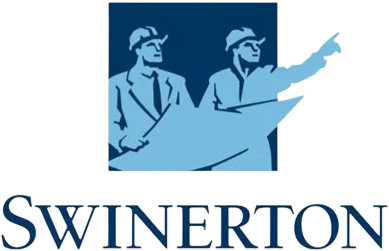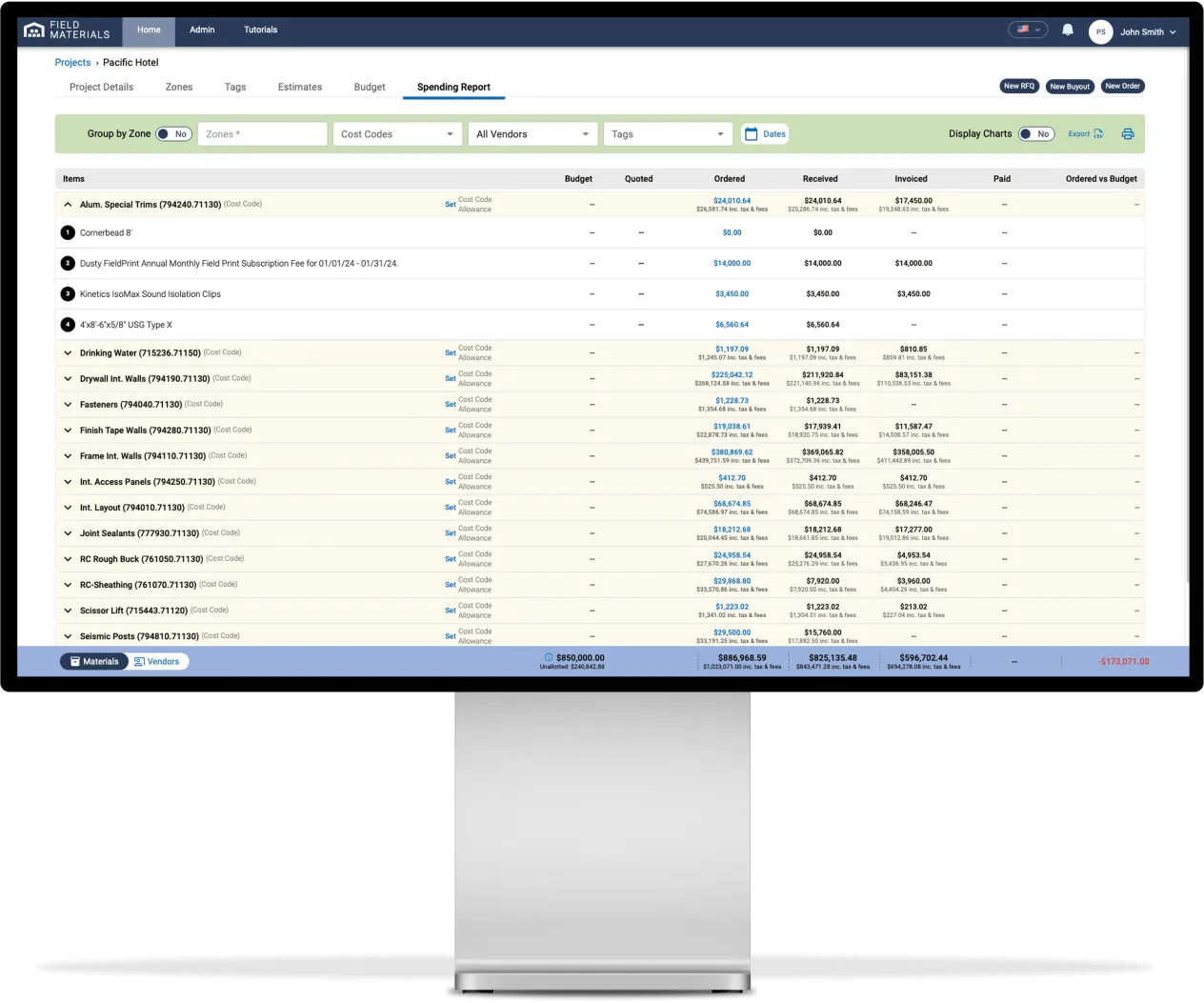
“If I know real-time what we’ve ordered, what we’ve received, and what we’ve been invoiced — I can make informed decisions weeks or even months ahead.”


With a rich history in brick masonry dating back to 1888, Swinerton has grown into a 100% employee-owned, national construction firm with $5B+ in annual contract volume. It provides commercial construction, construction management, design-build, and self-perform services across the U.S. With over 4,300 professionals across 23 regional offices, Swinerton delivers everything from LEED-certified medical campuses to iconic high-rises. For Irving Corrales, a Senior Project Manager based in the Los Angeles office, that scale brought a key challenge: keeping procurement organized between field and office teams as project complexity increased.
“Field Materials gave my field and office teams structure and visibility into a process that was previously inconsistent and inefficient.”

Before adopting Field Materials, Irving’s team relied heavily on manual processes to manage procurement. Forecasting material costs meant chasing down vendors for outstanding invoices, building spreadsheets from scratch to track what had been ordered, received, or billed, and training new staff using inconsistent workflows. Information was scattered across emails, documents, and systems, with no centralized way to order or track materials. Like so many other contractors, Swinerton had a fragmented, time-consuming process that lacked quick and timely access to critical financial insights. When new field staff joined, onboarding them meant emailing templates, digging up vendor contacts, and hoping nothing fell through the cracks.
“We were basically reinventing the wheel every time we placed an order.”
Irving rolled out Field Materials to standardize procurement across teams. What began as a meeting with the Field Materials product team — where he shared his custom Excel tracker — ultimately led to a fruitful collaboration that culminated with the platform’s Job Costs Report. With Field Materials in place, new field staff now follow a simple process to place orders from day one. Project teams can track orders, receipts, and invoices in a single system, creating a centralized “source of truth” for all procurement activity.

“It gives me something to point to — a structure to follow. That’s how you place an order now.”
Field Materials helped Irving's team move from reactive procurement to proactive decision-making — with better visibility, fewer delays, and a scalable process for the future.

Field Materials helped Irving shift from spreadsheets to a modern, field-friendly system that scales with the business.